Behfarmaheen (If You Please)
Created and performed by Barzin Akhavan
Directed by Desdemona Chiang
Ashland, OR at the Oregon Shakespeare Festival July 31 – September 15, 2024
Author and Performer Barzin Akhavan starts the story of his schizophrenic but also blended American/Persian life with a long dialog in Farsi. He explains in the after-show talkback that the opening mimics his and his family’s feelings of not understanding during their first days/months/years in the United States. The scene works and he didn’t really need to explain his intent, but his desire that we UNDERSTAND is both tangible and touching.
The feeling of wanting to share, explain, and celebrate runs throughout the one-act show. Behfarmaheen, like the other one-person shows at the Oregon Shakespeare Festival this year, is a very personable, very moving, very revelatory treat.
He helps the audience share the feeling of foreignness in two especially noteworthy scenes. In one he teaches the us how to pronounce the play’s name, Behfarmaheen. We are learning the meaning and how to say this foreign Farsi word, and that process helps us experience some of what he and his family went through.
Similarly, to let us join in a celebration Barzin teaches us how to dance like his Persian family. It was quick, eye-opening, and fun.
Barzin was four in 1980 when his family moved to the US from his birth country Germany. They were already refugees from the Iran and moving, trying to put down roots, and trying to figure out the culture is obviously THE focus of his formative years. But, wait, there’s more.
We see and feel him and his family deal with the American culture, strive to understand, and still be an outsider. But there are scenes that focus on him becoming Homecoming King of his high school and a passing mention of how he was student body president. These aren’t positions of an interloper, at least not in my experience.
Well, maybe. Because his mother and father, especially his father, take some time comprehending who their son is. To the present day.
The dichotomy between achieving objective success and feeling seen and understood enriches the show from scene to scene. Barzin wants us to see how we feel and react isn’t dependent on the culture we grew up in… except, very pointedly, when it does affect how we view our lives and what’s going on.
I was intrigued with the details of Barzin’s life. From being the district winner of the Daughters of the American Revolution high school essay contest to wrestling on stage naked in a political/emotional comedy sketch in front of his unprepared father, the man has breadth and amazing stories. I loved hearing all about him and having his basically positive perspective seep out throughout the show.
I confess that some of his approach confused me. He is focused on 1980 with all the important events in the world that happened that year and has a storyboard in the lobby before the show that showcased Iran-Iraq war, John Lenon assignation, the exiled Shah dying in Egypt, more Iranian politics, Richard Pryor burning himself while freebasing, the “Miracle on Ice” at the winter Olympics, and more. Then during the performance Barzin runs a game show where two real audience members compete for prizes while they answer up to six questions about the storyboard.
Huh?
I get that Barzin’s coming to America in 1980 fit in with the other important world events, but, but, but… the events are not intrinsically part of any scene in the show. The turmoil in Iran most likely forced his family to emigrate and eventually immigrate to the US, but I don’t recall that being stated? And, I need an explanation of why he selected certain events. And, the game show was not exciting or fun.
The best I can figure out is that Barzin really wanted people to focus on the 1980 events and offering a prize for remembering the most facts made some of us concentrate on the high/low points of the year. I would weave some of the stories into a scene or two or else I’d leave out the storyboard and game show.
The other distraction I ran into was the breaking of chronological order. I felt I was seeing progression and better understanding of life, college and acting were coming along. Then we were back in high school or before.
I didn’t know when I saw the show that many moments are adlibbed. He mentioned that format in the talkback. Whenever the lights come on and show the audience, Barzin is not on script. Apparently, there is a phrase or hand gesture that lets the stage manager know that the scene is over, but there is not a fixed story.
I assume Barzin is traveling down some activity, audience mood, or something-induced memory which he translates into a scene. Maybe the chronological location of the scene is not important and that’s why the show goes back and forth throughout his life. And, I realize that life and its revelations are not necessarily well ordered. Still, I would appreciate a deliberate unveiling of the overall story that the improv structure does not support.
Fortunately, overall, this is another must-see show featuring a man whose work I’ve long enjoyed. And, I need to acknowledge he must have incredible guts to put so any sides of him on stage for us.
Thank you, Barzin for sharing, showing, and letting us in. And, thank you OSF for supporting Barzin and the other performers this year that gave us such intimate moments in the Thomas.
Behfarmaheen is definitely worth seeing. A happy ![]() event!
event!


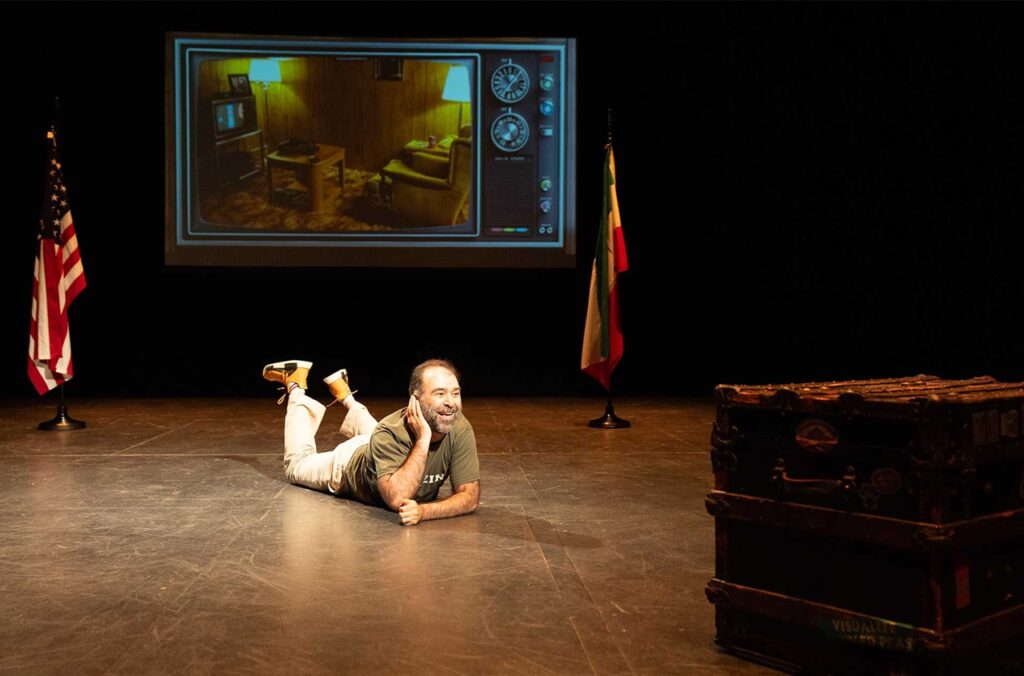
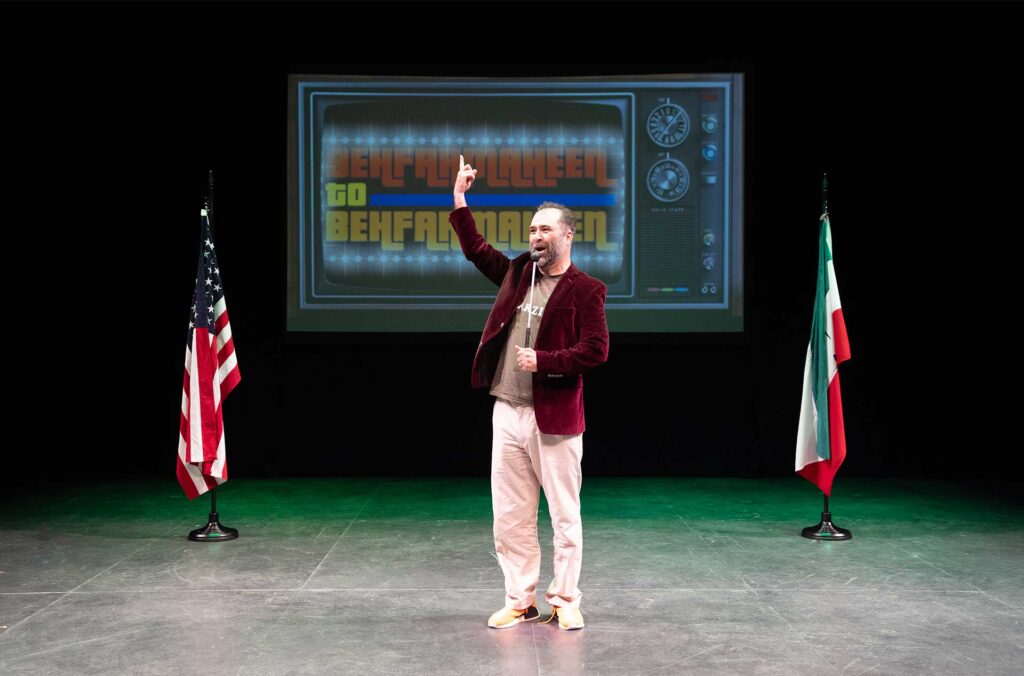
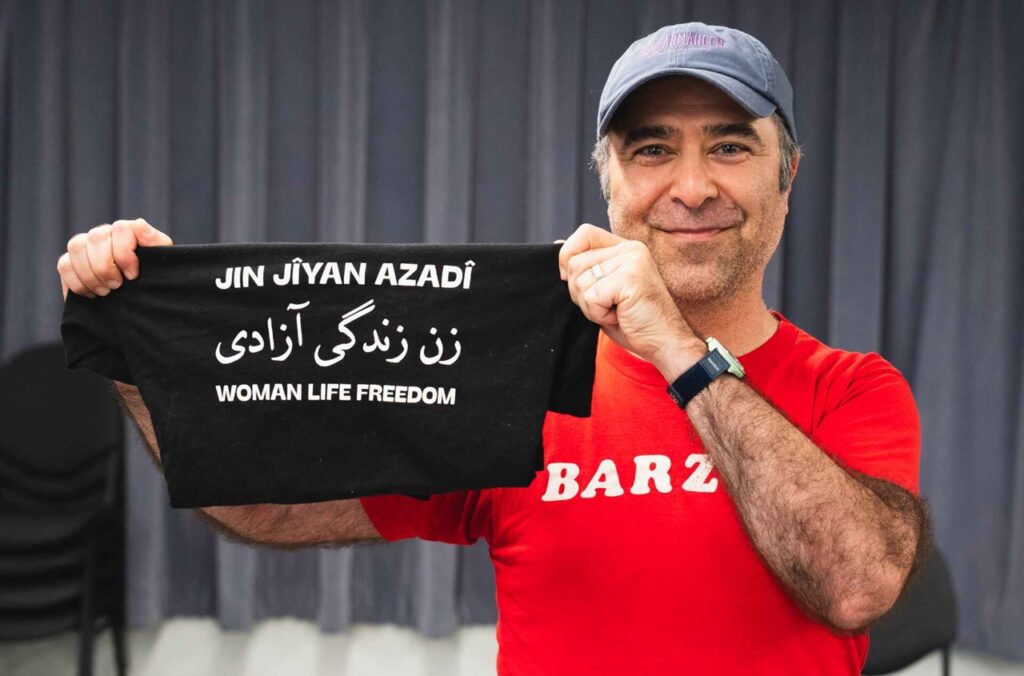
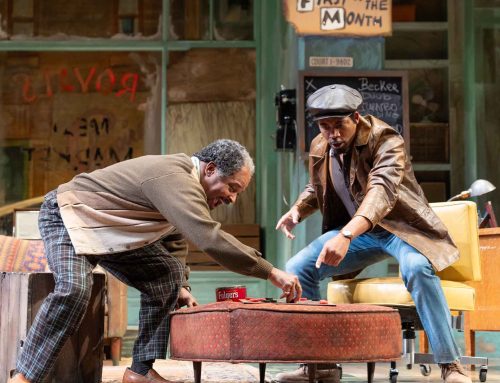
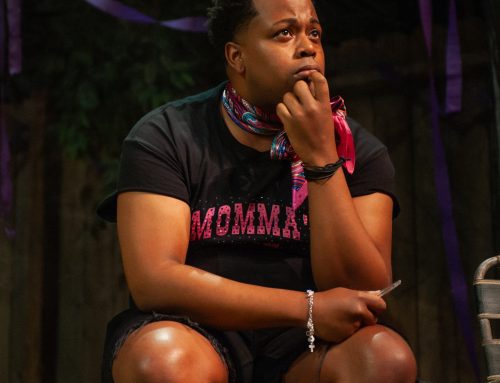
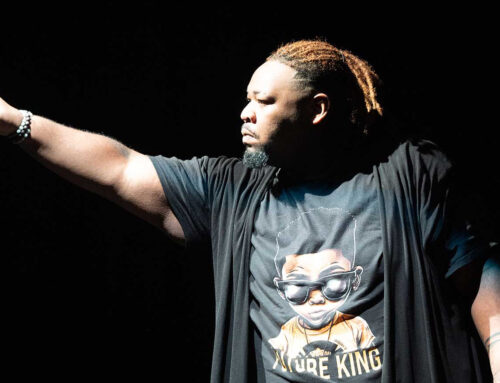
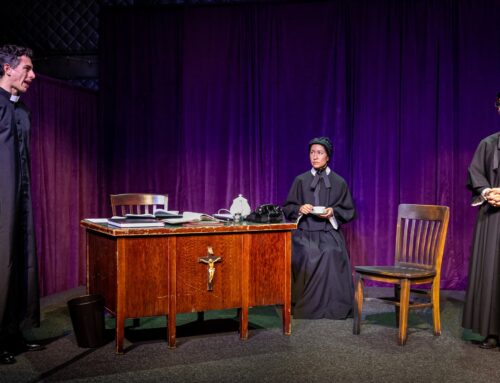
Leave A Comment